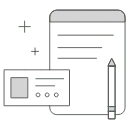What is Atherectomy?
An atherectomy procedure treats narrowed or blocked coronary arteries that are not easily treated with stents. Coronary atherectomy is used to open the coronary arteries which are blocked with plaque and improves blood flow to your heart muscle. Coronary arteries are blood vessels that supply blood to your heart muscles. Coronary atherectomy may be performed before an angioplasty.
The atherectomy procedure involves inserting a catheter with a small rotary shaver at its tip into the artery to remove plaque from the blood vessels. The catheter may be required to pass multiple times so that a significant amount of atherosclerosis (build-up of plaque) is removed. Your doctor will recommend coronary atherectomy in the following conditions:
- If you have angina (chest pain) and shortness of breath, which are clear symptoms of Coronary artery disease (CAD).
- If you had a heart attack.
- If you had a coronary bypass graft that has closed or narrowed.
- If your symptoms do not respond to medications and interfere with daily activities.
- In order to have a proper flow of blood through the heart muscles, when the arteries are blocked.
Request a Free Estimate

- Travel to India for Affordable and Advanced Healthcare
How is Atherectomy Performed?
This procedure takes about one to two hours under general anaesthesia. Your doctor may prescribe medication to prevent blood clots from forming in your arteries.
Step 1 – Depending on which of your arteries is blocked, your surgeon will make a small incision in a blood vessel in your arm or groin and insert a thin, flexible tube called a catheter.
Step 2 – The catheter will have a sharp blade attached to it. Your surgeon may need to pass the catheter multiple times in order to remove a significant amount of atherosclerosis. A stent is used to keep it open.
Step 3 – Your doctor will insert a tiny tube (catheter) and guide the wire through the incision. The catheter is inserted into the artery that needs atherectomy. X-rays guide the wire to the exact location.
Step 4 – Your doctor will inject a contrast agent through the catheter to help improve the quality of the X-ray images.
Step 5 – Your doctor will grind or shave away the blockage to open or widen your coronary artery.
Step 6 – Your doctor may take additional X-rays to verify that blood is flowing as expected. Your doctor will remove the catheter and then close the catheter site.
Want more clarification about medical expense & treatment plan?
Plan Your Atherectomy In India
Get a Free Doctor's OpinionWhatapp UsWhat happens after Atherectomy?
You will have mild drowsiness from the sedative medications after the procedure. It is natural to have mild tenderness and bruising at the catheter incision site. Your activities will be restricted following coronary atherectomy. You will need to lie down with your leg or arm straight for six hours following coronary atherectomy. You may also need to take a new medication to prevent blood clots and spasms in your arteries. You should drink extra fluids to flush out the contrast agent used during the procedure. Follow your dietician’s instructions after coronary atherectomy.
What are the Complications of Atherectomy?
Complications of coronary atherectomy include:
- Abnormal heart rhythms
- Adverse reactions or problems related to sedation or medications, such as an allergic reaction and problems with breathing
- Bleeding
- Blood clots within your arteries or recurrence of artery narrowing or blockage
- Damage to an artery from the catheter or instruments
- Embolization occurs when dislodged plaque travels and blocks other arteries in the body
- Exposure to ionizing radiation, which may be harmful in excessive doses
- Chest pain, heart attack, or stroke
- Infection
- Kidney injury from the contrast agent, especially if you have kidney problems
What is the Outcome of Atherectomy?
- The atherectomy procedure provides relief of symptoms of atherosclerosis.
- It eliminates the build-up of plaque in your arteries.
- The atherectomy procedure provides the advantage of preventing the artery from narrowing again.
- After several days, you can usually begin with normal non-straining activities like driving.
- In case of a complicated procedure, the hospital stay will last between 1 to 2 Days.
Care at Treatment Possible:
If you need any more information on Atherectomy Procedure then please feel free to contact us at care@treatmentpossible.com. At Treatment Possible, our main objective is to provide the best options for heart bypass surgeries in India at the lowest cost. Thus, we recognize the significance of excellent health and well-being of our guests by preferring association with Top Cardiac Surgeons and Best Hospital for Heart Bypass Surgery in India.
We encourage you to educate yourself about Heart Bypass Surgery, procedure, and cost in India and then make an informed decision. An individually allocated case manager takes personalized interest to design a tailor-made treatment plan for every guest and provides a specific time, and cost of the heart bypass surgery in India.
Get Free Consultation with chosen Top Surgeons in India with a hassle-free setup for post-operative recovery care, travel & stay. Check out more valuable information about Heart Bypass Surgery in India.
Our Services
From Treatment To Recovery, We Are Always There With You!

Medical Visa Letter
We provide a Medical visa letter for which we require the scanned passport copies of the patient and attendant.

Arrange An Appointment With A Surgeon
We arrange for the appointment with the surgeon, confirm for the hospital room and operation theatre (if required)

Post Surgery Follow Up
We help you to fix your telephonic appointment for future follow-ups

Complimentary Pickup
We arrange for complimentary pickup and drop services from the airport.

All The Necessary Arrangements
We arrange for hospital admission, forex exchange, sim card and local assistance

No Need To Worry About Essential Expenses!
We help in sorting out the hospital bill, return ticket, medicines and other essential purchases.
Frequently asked questions:
What is plaque?
Plaque is the build-up of fat in arteries, cholesterol, calcium and other substances. When plaque builds, it will block blood flow, or it may rupture, causing blood clots. This build-up of plaque is called atherosclerosis. An atherectomy is a treatment for atherosclerosis.
What is the difference between angioplasty and atherectomy?
- In Angioplasty, a balloon is inflated to open the vessel, and then a mesh frame called a stent will be placed in the vessel to support the walls.
- In Atherectomy, the plaque is removed using a rotating shaver or laser.
What is the cost of an Atherectomy?
The indicative cost of an Atherectomy procedure in India is around USD 3500 to 6000/-
Can ECG detect blocked arteries?
Your doctor may use an electrocardiogram to determine or detect the abnormal heart rhythm (arrhythmias) and if blocked or narrowed arteries in your heart (coronary artery disease) are causing chest pain or a heart attack. An ECG can often reveal evidence of a previous heart attack.
What happens if coronary artery disease is left untreated?
If left untreated, coronary artery disease leads to chest pain (angina), shortness of breath, heart attack and possibly death. Several factors can increase your chances of coronary artery disease, including high LDL cholesterol, high triglycerides levels and reduced HDL cholesterol.
What organs are affected by coronary artery disease?
Coronary artery disease affects the large arteries which are on the surface of the heart. The coronary microvascular disease affects the arteries in the heart muscle. The cause depends on the type of coronary heart disease.
